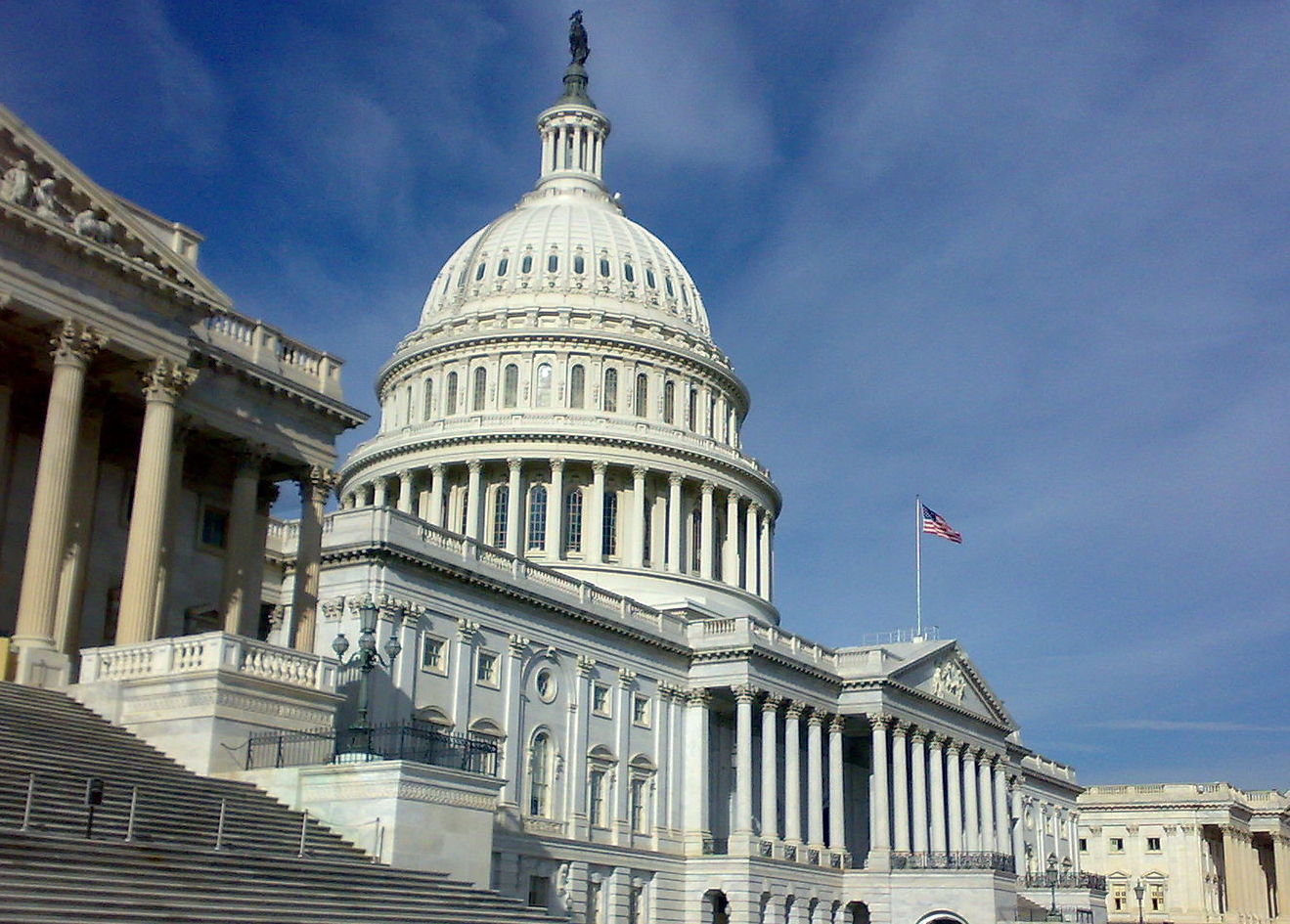Congress as International Law Defender?
Many people are unaccustomed to thinking about Congress as a key player when it comes to foreign policy or international law outside of Congress’s few clearly established roles, such as providing advice and consent to treaty ratification or defining and punishing violations of the law of nations.

Published by The Lawfare Institute
in Cooperation With

Many people are unaccustomed to thinking about Congress as a key player when it comes to foreign policy or international law outside of Congress’s few clearly established roles, such as providing advice and consent to treaty ratification or defining and punishing violations of the law of nations.
Recent events, however, reveal a Congress that is stepping up to embrace international law in the face of a White House that seemingly opposes, or at least is uncommitted to, various international legal norms. Where President Trump declined to offer full-throated support for NATO’s collective security provision in Article 5, the Senate recently voted unanimously to support it. Likewise, where the White House has aggressively pursued a $110 billion deal to sell arms to Saudi Arabia, Congress mustered significant bipartisan support for curbing part of the deal. The Saudi military’s targeting in Yemen has produced many civilian casualties, raising serious concerns among members of Congress about the Saudi government’s ability and willingness to comply with international humanitarian law.
Should we be surprised that wide swaths of Congress are showing strong support for these international laws? It may seem a little surprising, but it’s consistent with research I conducted, soon to be published in an article in the Virginia Journal of International Law. As it turns out—contrary to received wisdom about congressional skepticism regarding international law—over the years Congress has produced dozens of statutes that invoke international law, even when Congress is not enacting those statutes to implement U.S. treaty obligations. In areas spanning tax, trade, maritime, criminal, military, human rights, and foreign relations issues, Congress affirmatively incorporates international law into statutes with some frequency—as a way to define concepts, set boundaries around executive action, or authorize the Executive to enforce international law against others. In the article, I term these laws “statutory international law.” The piece explores the various avenues through which Congress learns about relevant international law and examines the implications on both the international and domestic fronts for Congress’s use of statutory international law.
In light of these findings regarding Congress’s demonstrated facility with international law, it is in fact not so surprising that a significant number of members are either embracing or taking into account international legal rules when thinking about U.S. foreign policy today.
Here’s the abstract:
International law pervades the U.S. Code. This will come as a surprise to many members of Congress, as well as to those who accept the common trope that Congress is ignorant about or hostile to international law. It also may be news to foreign affairs scholars who study those areas in which Congress necessarily must interact with international law, such as where the Senate provides advice and consent to treaty ratification or Congress enacts implementing legislation to further U.S. treaty commitments. Even those who have examined these high-profile congressional interactions with international law likely are not attuned to the breadth and depth of Congress’s voluntary interactions with international law in a wide variety of situations in which it legislates.
The little-discussed proliferation of international law throughout U.S. statutes – termed here “statutory international law” – is the launching point for the article. Because limited attention is paid to congressional engagement with international law, current legal literature lacks a descriptive and theoretical account of when, why, and how Congress engages with these norms to advance its legislative goals. This article is the first to systematically examine the phenomenon of statutory international law.
Tracking how these norms find their way into statutes reveals the critical but often unseen influence of the Executive on the language of legislation. Further, the presence of statutory international law in the U.S. Code has important implications for the development of customary international law. It accelerates the amount of state practice that the Executive and courts produce and correspondingly empowers the United States to shape customary international law. This, in turn, reduces customary international law’s notorious democracy deficit. In the domestic context, statutory international law introduces new factors to inform ongoing debates about the Charming Betsy canon of statutory interpretation, while highlighting confounding effects on the separation of powers in foreign affairs.



.png?sfvrsn=bd249d6d_5)

